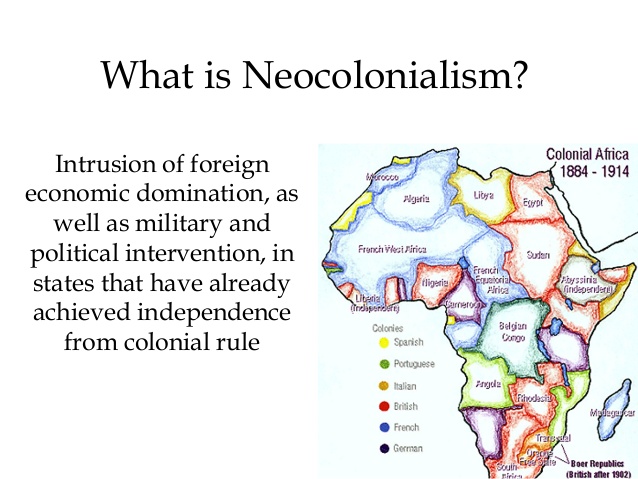Neocolonialism
After independence, some African nations declared their political allegiance to their former European rulers—such as Britain, France, and Belgium—and continued to rely on them for economic assistance. This policy became known in the 1960s as neocolonialism. Not all African nations chose to pursue neocolonial relationships. Those that had gained independence after violent struggles against European powers, such as ALGERIA, usually chose to remain nonaligned, or neutral, or they developed close ties with the Soviet Union or non-Western countries. In many cases, these African countries adopted economic systems based on socialism rather than capitalism. They associated capitalism with the exploitation they had suffered at the hands of Europeans.
For the most part, the African nations that followed the neocolonialist path, such as IVORY COAST and MALAWI, had been granted independence without conflict. Their relationships with their former colonial rulers remained friendly and often involved financial and technical support. Although the neocolonial nations had also suffered from economic exploitation, they felt that many of the economic and social changes introduced under colonialism were positive. As a result, they followed the path of Western-style capitalism.

The leaders of the neocolonial states proposed to do more rapidly what colonization was supposed to have begun—the creation of a modern economy. Following the colonial model, these states continued to emphasize mining and cash crop agriculture to increase their export income. Instead of carrying out agricultural reforms, they allowed foreign landowners to hold onto the property they had acquired. They also kept their economic institutions closely linked to foreign capitalist systems. To keep peasant majorities under control, they favored singleparty government rather than full democracy.
The neocolonialists assumed that economic development would occur in orderly stages. They believed that profits from agriculture and mining would create a market for industry, which would attract foreign and local investors. However, the transition from one stage to the next did not take place as planned. Although certain countries managed to create an illusion of economic success, they soon discovered that the path to prosperity was more difficult than assumed. To survive, many neocolonial governments began to depend on loans from foreign countries and international organizations, and ran up enormous debts. By the 1980s debt payments were draining resources away from programs such as education and health care.
In the long run, neocolonial policies led to a number of unintended consequences: limited political rights for the people, slower economic growth, decreasing food production because of the emphasis on export crops, the collapse of social services, and increasing political corruption. Overall, neocolonialism has been a dramatic failure in Africa, leading to serious political and economic crises throughout much of the continent. (See also Colonialism in Africa; Development, Economic and Social; Economic History; History of Africa; Independence Movements.)